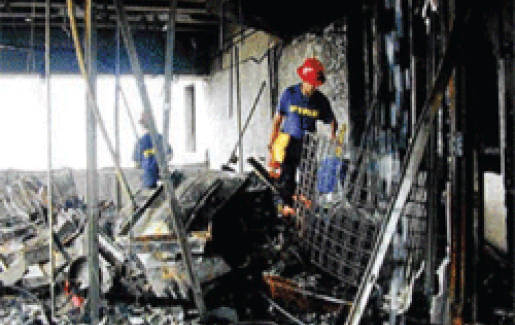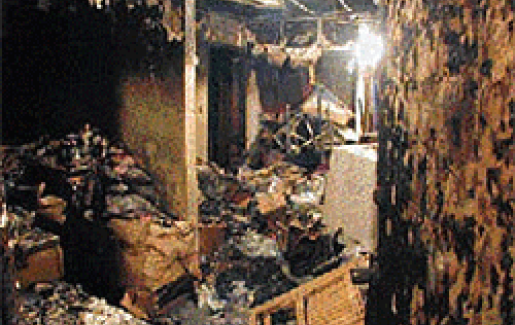The Interstate Building
A major fire severely damaged a twenty-story poured-in-place concrete structure occupied as an office condominium in Honolulu, Hawaii. Ninety…
…As the dust settled and it became clear that there was no one on ‘our side,’ we began to think that maybe we could use some help. Maybe, just maybe, I was not as prepared for what lay ahead…
It became clear during the interviews that Adjusters International was a ‘cut above the rest.’ It became evident from referrals and your intensity and conviction that you were clearly the best choice for us. We never looked back. We cannot thank you enough for the wonderful job that you did. You were there for us every step of the way. You fought for us unwaveringly on difficult matters. You got us more than what we probably would have gotten had we not hired you. You were worth every penny we paid you. We would never consider handling a claim of this size without you.
Descripción
A major fire severely damaged a twenty-story poured-in-place concrete structure occupied as an office condominium in Honolulu, Hawaii.
Ninety percent of the entire fire department on the Island of Oahu fought the blaze for eight hours, and several fire fighters were injured battling the blaze. During the overhaul operations the fire department inundated the building with water. The basement, occupied by the First Hawaiian Bank of Hawaii, was submerged in approximately six feet of water. In an effort to dry-out the building, persons were literally hired off the street to remove all of the vinyl wall covering and some drywall. Munters was hired by the carrier to dry the building.
Problemas
- During the interview process, Adjusters International observed the beginning of very serious microbial contamination. Despite our best efforts, we were not able to convince everyone as to the extent of the contamination, as the property is situated in a tropical zone and mold is not atypical.
- When the vinyl wallcovering was removed so was the outer layer of paper on the gypsum board. The insurer and its consultants tried desperately to pay the insured only the cost to install a 1/4″ sheet of drywall over the existing wallboard in an effort to save millions of dollars.
- The insurer hired a consultant from New York to assess the damages and create a working scope in order to prepare a low-ball estimate. They refused to consider the cost of local labor.
- The insurer refused to consider line-of-site matching issues.
Soluciones Aplicadas
- Adjusters International introduced an industrial hygienist and assisted in the development of protocol for microbial contamination remediation. Working together we were able to convince the involved parties as to the magnitude of the problem and the need to effectuate the repairs in a two-phase process. The first phase was the emergency stabilization/drying-out process and microbial contamination remediation. Phase I set the stage for a successful Phase II, namely, establishing an accurate scope of damage and specifications for repair.
- Adjusters International coordinated a mock-up repair (installation of a 1/4″ gypsum board) in order to demonstrate to the insurer that their recommended repair scheme would result in an architectural nightmare. The application of the skin mandated the installation of wider door jambs as well as receptacle extenders, etc. Ultimately, we were able to prove to the carrier and its consultants that the scope we prescribed was the only reasonable and practical remedy for repair.
- Adjusters International prepared an analysis to demonstrate to the carrier that by the time they took into consideration the per-diem cost of imported labor, it was actually more economically feasible to pay the going rate for local labor. Ultimately, the carrier acquiesced.


